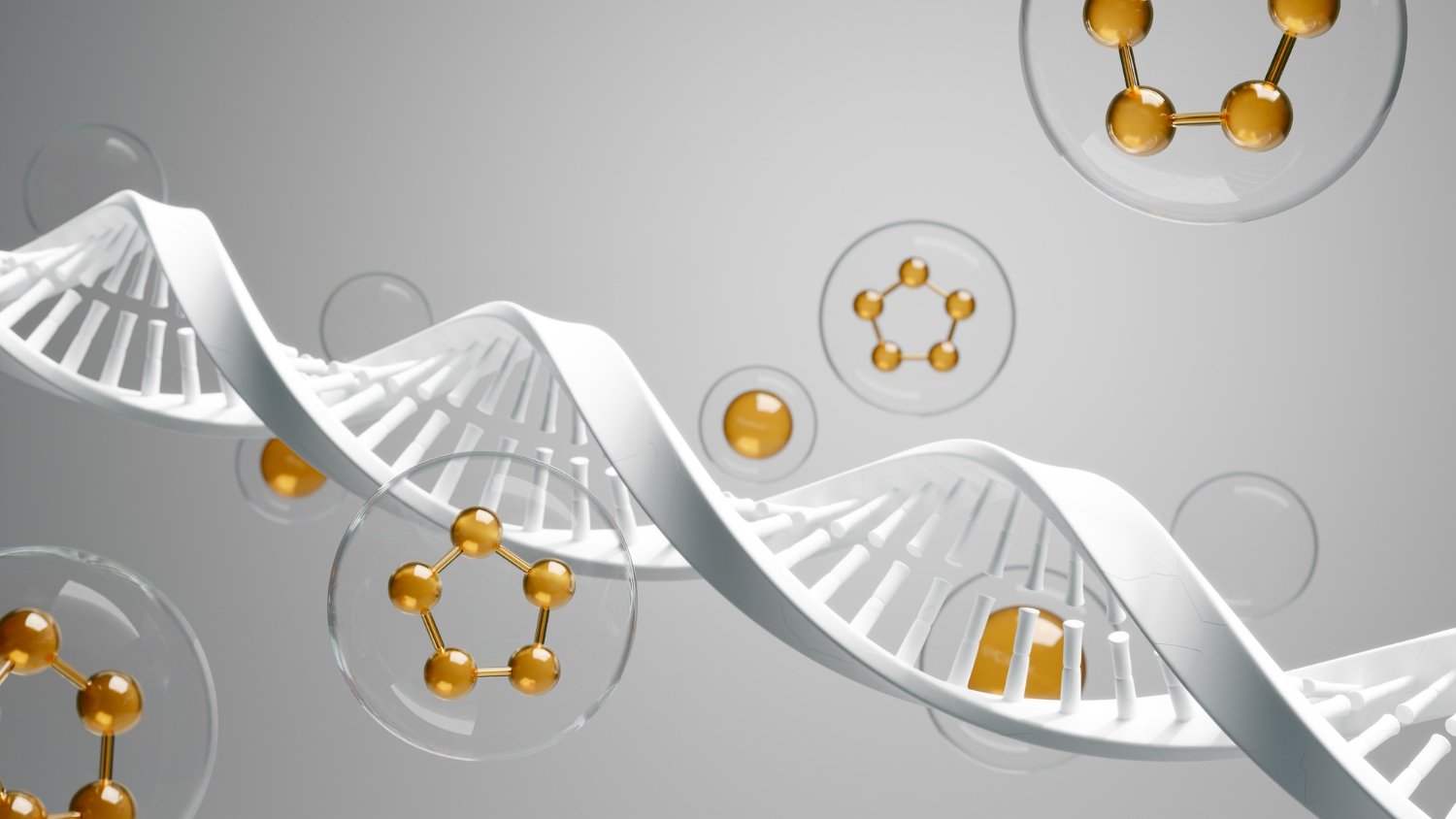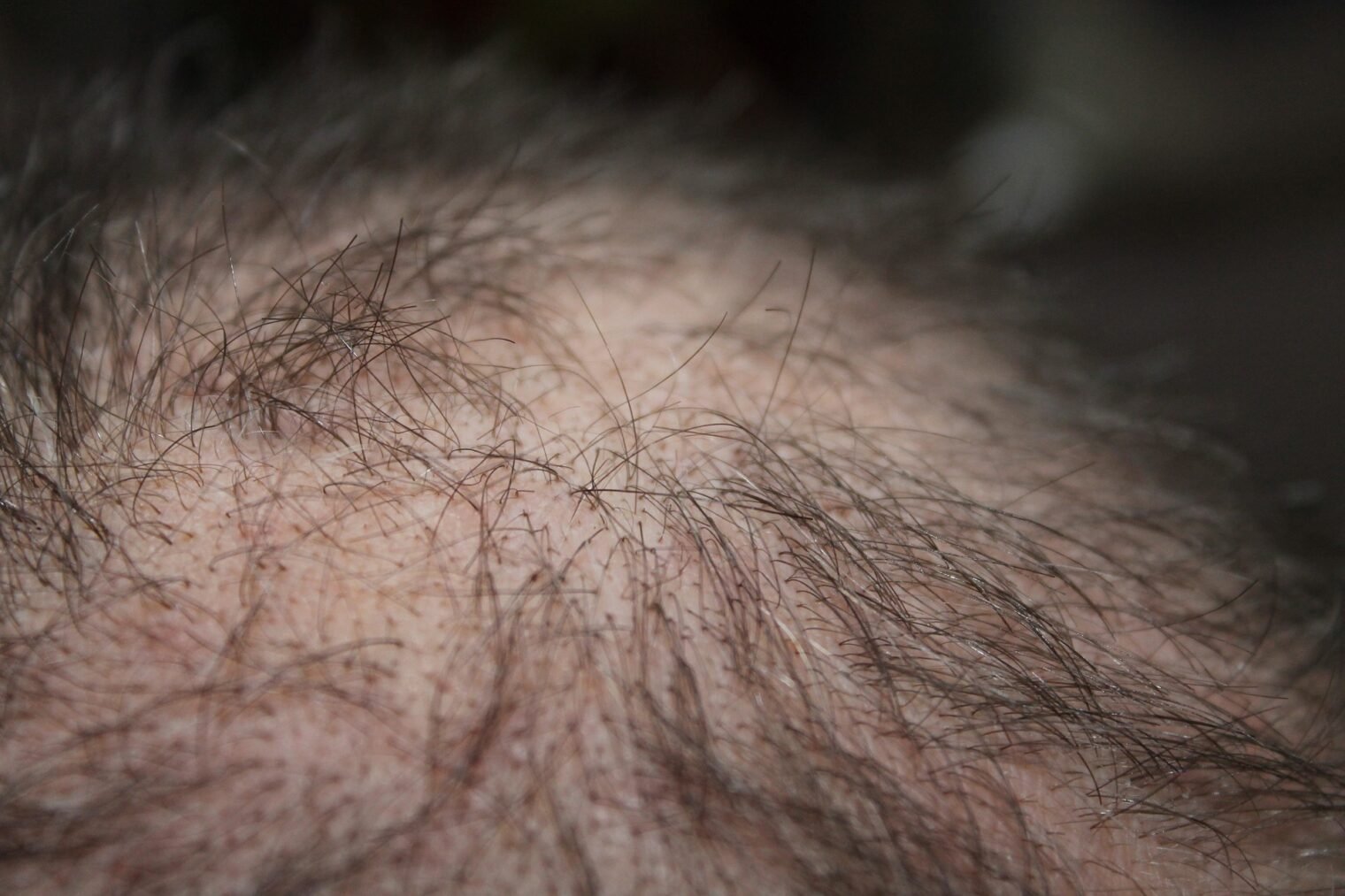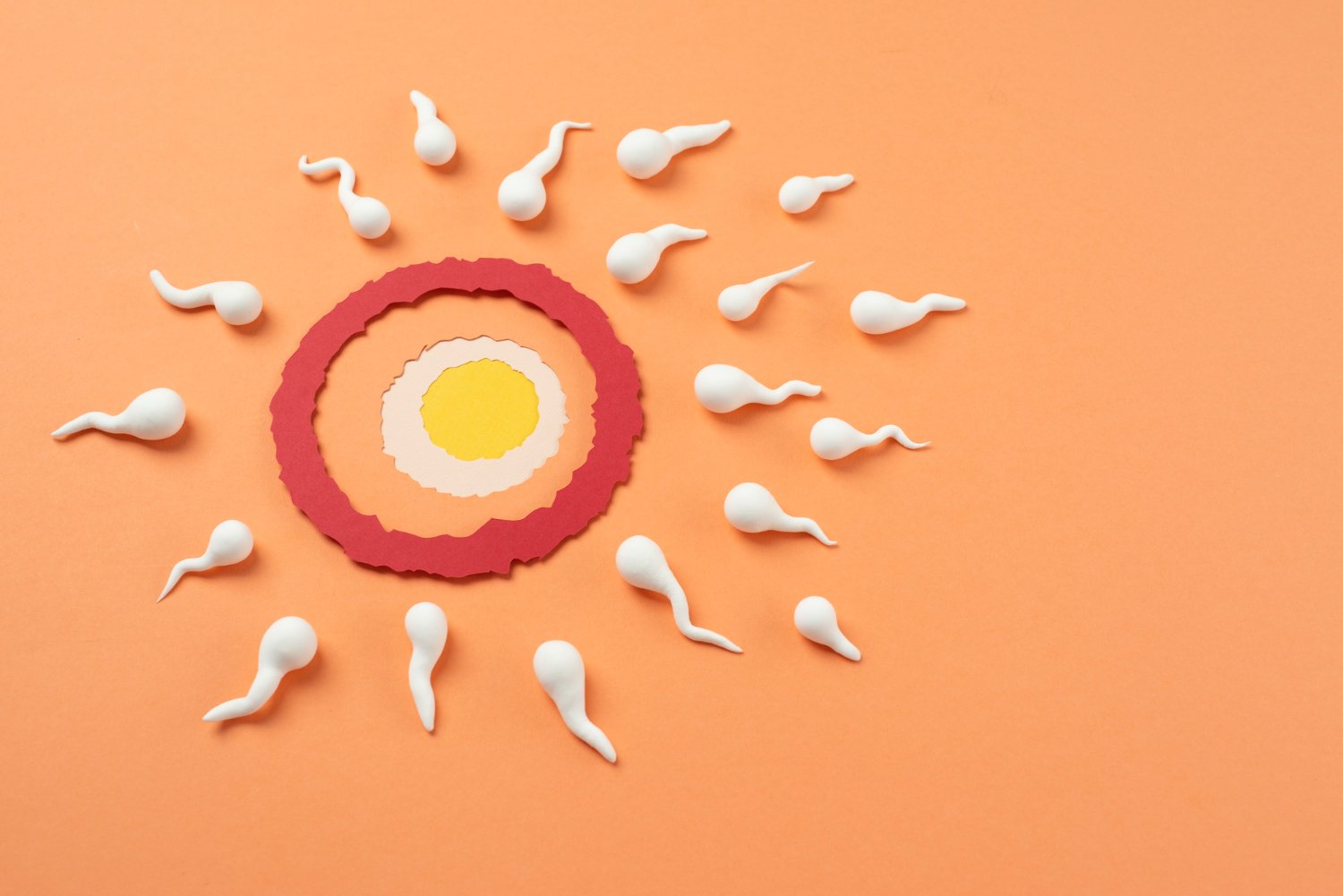How to notice if you have low testosterone?
Feeling constantly fatigued and lacking the energy to get through the day? You’re not alone. Many men experience low energy levels, which can be attributed to various factors, including low testosterone levels. But how can you determine if low testosterone is the cause? In this discussion, we will explore 12 key indicators that may suggest low testosterone in men. By understanding these signs, you can gain valuable insight into your own health and well-being and take the necessary steps toward finding a solution.
1. Fatigue: Do you find yourself feeling tired even after a good night’s sleep? Low testosterone levels can contribute to persistent fatigue and a general lack of energy.
2. Decreased libido: Has your interest in sex diminished? Low testosterone can lead to a reduced sex drive, making it difficult to maintain a satisfying sexual relationship.
3. Erectile dysfunction: Are you struggling with achieving or maintaining erections? Low testosterone levels can impact the quality and duration of your erections, affecting your sexual performance.
4. Loss of muscle mass: Have you noticed a decline in your muscle mass, even with regular exercise? Low testosterone can contribute to muscle loss and a decrease in strength.
5. Increased body fat: Are you experiencing weight gain, particularly around the abdomen? Low testosterone levels can affect your body’s ability to burn fat, leading to an increase in body fat percentage.
6. Mood changes: Do you find yourself feeling irritable, depressed, or anxious? Low testosterone levels can impact your mood and overall sense of well-being.
7. Decreased bone mass: Are you more prone to fractures or experiencing joint pain? Low testosterone can contribute to a decrease in bone density, increasing the risk of osteoporosis and fractures.
8. Decreased cognitive function: Are you experiencing difficulties with memory, concentration, or mental clarity? Low testosterone levels can affect cognitive function, making it harder to focus and retain information.
9. Hair loss: Have you noticed thinning hair or a receding hairline? Low testosterone can contribute to hair loss, particularly in the crown and temples.
10. Sleep disturbances: Are you having trouble falling asleep or staying asleep throughout the night? Low testosterone levels can disrupt your sleep patterns, leading to insomnia or restless nights.
11. Decreased energy levels: Do you struggle to find the energy to engage in physical activities or pursue your interests? Low testosterone can result in a lack of motivation and diminished energy levels.
12. Decreased overall well-being: Are you generally feeling unwell or not like yourself? Low testosterone levels can impact your overall sense of well-being, affecting your quality of life.
If you resonate with several of these signs, it may be worth consulting with a medical professional who specialises in testosterone treatments. They can evaluate your symptoms, conduct appropriate tests, and develop a personalised treatment plan to address your low testosterone levels. Remember, taking proactive steps toward improving your health and well-being is essential for a fulfilling and vibrant life.
Key Takeaways
• Low testosterone can cause a range of physical symptoms such as fatigue, decreased muscle mass and strength, hair loss, weight gain, and enlarged breasts.
• Sexual symptoms of low testosterone include loss of libido, sexual dysfunction, difficulty achieving orgasm, decreased sexual desire, and fertility issues.
• Low testosterone can also affect psychological well-being, leading to mood changes, mood swings, difficulty concentrating, memory problems, and mental fog.
• Treatment options for erectile dysfunction caused by low testosterone include medications, hormone therapy, penile implants, and counseling.
Fatigue and Low Energy Levels
If you’re feeling constantly tired and lacking in energy, it could be a potential sign of low testosterone in men. Testosterone is a hormone that plays a vital role in maintaining energy levels and overall vitality. When testosterone levels are low, it can lead to a decrease in energy and an increase in fatigue. Managing fatigue is crucial for maintaining a healthy lifestyle and optimising daily activities.
There are various strategies you can incorporate into your routine to boost your energy levels and combat fatigue.
One effective method for managing fatigue is regular exercise. Engaging in physical activity can increase testosterone levels, improve mood, and enhance overall energy levels. Aim for at least 150 minutes of moderate-intensity exercise per week, such as brisk walking, cycling, or swimming. Additionally, strength training exercises can help build muscle mass and increase testosterone production.
Another activity that can boost your energy is getting enough sleep. Lack of sleep can significantly impact testosterone levels and contribute to fatigue. Aim for 7-9 hours of quality sleep each night to ensure adequate rest and hormone regulation.
Proper nutrition is also crucial for managing fatigue and optimising energy levels. Include a balanced diet rich in fruits, vegetables, lean proteins, whole grains, and healthy fats. Stay hydrated and limit your intake of processed foods, sugary snacks, and caffeine, as they can lead to energy crashes.
As a medical doctor specialising in testosterone treatments, I can assure you that addressing low testosterone levels can make a significant difference in your energy levels and overall well-being. If you suspect low testosterone as the underlying cause of your fatigue, it’s important to consult with a healthcare professional who can properly diagnose and provide appropriate treatment options.
Decreased Muscle Mass and Strength
Feeling constantly fatigued and lacking energy isn’t only a possible sign of low testosterone in men, but it can also contribute to a decrease in muscle mass and strength. Low levels of testosterone can have a negative impact on your body’s ability to build and maintain muscle mass, which can lead to a decline in physical performance and overall well-being.
Testosterone is a hormone that plays a vital role in muscle development. It helps promote protein synthesis, which is crucial for muscle growth and repair. When testosterone levels are low, your body may struggle to effectively build and maintain muscle mass. Over time, this can result in a decrease in muscle size and strength.
Research has shown that low testosterone levels can significantly affect physical performance. A study published in the Journal of Clinical Endocrinology & Metabolism discovered that men with low testosterone levels had reduced muscle strength compared to those with normal testosterone levels. Another study in the International Journal of Sports Medicine revealed that testosterone replacement therapy in men with low testosterone levels improved muscle strength and physical performance.
The decrease in muscle mass and strength caused by low testosterone can have a significant impact on your overall well-being. Muscle strength is crucial for carrying out daily activities, maintaining balance, and preventing injuries. When your muscles are weak, you may find it more challenging to engage in physical activities and enjoy an active lifestyle.
As a medical doctor with over 20 years of experience in the field, specialising in Hair Transplants, erectile dysfunction, and testosterone treatments, I can assure you that addressing low testosterone levels is essential for maintaining muscle mass and strength. If you’re experiencing persistent fatigue, lack of energy, and decreased muscle performance, it’s crucial to seek medical advice to determine the underlying cause and explore potential treatment options.
Loss of Libido and Sexual Dysfunction
If you’re experiencing low testosterone levels, you may also notice a decrease in your libido and sexual function. Erectile dysfunction, characterised by the inability to achieve or maintain an erection, is a common symptom of low testosterone.
Additionally, you may experience a decrease in sexual desire, finding that you have less interest or motivation for sexual activities.
Some individuals may also encounter difficulties achieving orgasm.
These symptoms can significantly impact your sexual satisfaction and overall quality of life.
Erectile Dysfunction
Men who are experiencing erectile dysfunction may notice a decrease in their sexual desire and difficulties in achieving or maintaining an erection. It’s important to understand that erectile dysfunction can be caused by various factors, including low testosterone levels. When testosterone levels are low, it can lead to reduced sexual desire and difficulties with erections.
There are several treatment options available for erectile dysfunction. Medications such as Viagra, Cialis, and Levitra can be prescribed to increase blood flow to the penis and help with achieving and maintaining an erection. Hormone therapy, penile implants, and counseling are also viable options for treatment. Consulting with a healthcare professional is crucial to determine the most appropriate treatment plan for your specific situation.
As a medical professional with over 20 years of experience in the field, specialising in hair transplants, erectile dysfunction, and testosterone treatments, I can assure you that these treatment options have been proven to be effective and safe.
It’s worth noting that erectile dysfunction can significantly impact relationships and overall quality of life. Many men find it difficult to discuss this issue, but it’s important to seek help and explore treatment options. Remember that you aren’t alone, and there are medical professionals who specialise in addressing these concerns.
Decreased Sexual Desire
Loss of sexual desire, also known as low libido, can be a common symptom of low testosterone levels in men. Testosterone is a hormone that plays a significant role in maintaining healthy sexual function. When testosterone levels are low, it can lead to a decrease in sexual desire and may even cause sexual dysfunction.
It’s important to note that other factors such as stress, relationship problems, or certain medications can also contribute to a decrease in libido. However, if you’re experiencing a persistent decrease in sexual desire, it’s advisable to consult a healthcare professional for a proper diagnosis.
There are various treatment options available for low testosterone, including hormone replacement therapy, lifestyle changes, and fatigue management. These treatments can effectively address the underlying cause of low libido and help restore your sexual desire. Your healthcare provider, with their expertise and experience, can help determine the best course of action based on your individual needs.
It is essential to prioritise your sexual health and address any concerns you may have. As a medical professional, I understand the impact that low libido can have on your overall well-being and relationships. Rest assured, there are effective solutions available to help you regain your sexual desire and enjoy a fulfilling and satisfying sex life. Don’t hesitate to reach out to a healthcare professional who specialises in men’s sexual health for guidance and support. Remember, you don’t have to navigate this journey alone.
Difficulty Achieving Orgasm
Difficulty achieving orgasm, also known as anorgasmia, is a common symptom experienced by individuals with low libido and sexual dysfunction. When testosterone levels are low, it can affect sexual pleasure and lead to orgasmic dysfunction. Testosterone plays a significant role in the sexual response cycle, including the ability to reach orgasm. Research suggests that low testosterone levels can contribute to decreased sexual satisfaction and difficulty achieving orgasm.
This can be frustrating and lead to relationship problems. It’s important to note that difficulty achieving orgasm can have various causes, including psychological factors, relationship issues, or medical conditions. If you’re experiencing this symptom, it’s important to consult with a healthcare professional for a thorough evaluation and appropriate treatment options.
Mood Swings and Irritability
Do you often find yourself experiencing emotional instability and sudden anger outbursts?
These could be signs of low testosterone levels in men. Research has shown that low testosterone can contribute to mood swings and irritability, affecting your overall emotional well-being.
It’s important to be aware of these symptoms and seek medical attention to address any underlying hormonal imbalances.
Emotional Instability
Experiencing Mood Swings and Irritability?
It Could Be Low Testosterone Levels. If you’re going through mood swings and finding yourself easily irritable, it may be a possible indication of low testosterone levels in men. Emotional instability, characterised by frequent changes in mood and irritability, is a significant psychological effect of low testosterone.
Testosterone plays a vital role in maintaining emotional well-being in men. Numerous studies have shown that low testosterone levels can lead to mood and behavioral changes, resulting in increased irritability, anger, and even depression. This emotional instability can have a negative impact on relationships and overall quality of life.
It’s important to recognise these symptoms and seek guidance from a healthcare professional for an accurate diagnosis and appropriate treatment. Hormone replacement therapy or other treatments may be recommended to restore hormonal balance and enhance emotional well-being.
Anger Outbursts
Experiencing frequent anger outbursts and irritability is a common manifestation of low testosterone levels in men. When testosterone levels are low, it can affect your mood and lead to increased irritability and difficulty managing anger. These anger outbursts can be intense and may even lead to relationship problems. It’s important to understand that these mood swings and irritability aren’t solely a result of personality traits but can be influenced by hormonal imbalances.
To effectively manage anger outbursts caused by low testosterone, it’s crucial to seek medical advice and treatment. Consulting with a medical professional who specialises in hormone treatments, such as testosterone replacement therapy, can help restore hormone levels and improve your mood. This can have a significant impact on reducing anger outbursts and enhancing your overall well-being.
In addition to medical intervention, incorporating anger management techniques can also be beneficial. These techniques may include deep breathing exercises, mindfulness practices, cognitive-behavioral therapy (CBT), and stress reduction techniques. These strategies can help you regain control over your emotions and manage anger in a healthier way.
Addressing anger outbursts and irritability is vital not only for your own well-being but also for maintaining healthy relationships. By seeking appropriate treatment and employing effective anger management techniques, you can take proactive steps toward improving your emotional state and overall quality of life.
Increased Body Fat and Weight Gain
Experiencing increased body fat and weight gain can be common indicators of low testosterone levels in men. As a medical professional with extensive experience in the field, I can assure you that these changes in your body composition are directly linked to hormonal imbalances caused by low testosterone.
When testosterone levels are low, it can lead to an increase in body fat and a decrease in muscle mass. This hormonal imbalance affects your metabolism, making weight gain more likely, especially in the abdominal area.
One significant factor contributing to weight gain in men with low testosterone is an increased appetite. Testosterone plays a crucial role in regulating appetite and satiety hormones like leptin and ghrelin. When testosterone levels are low, these hormones may become imbalanced, resulting in a greater appetite and a higher likelihood of overeating. This overeating can contribute to the accumulation of excess body fat.
Moreover, low testosterone levels can also impact your metabolism. Testosterone helps regulate metabolism by promoting the growth and maintenance of lean muscle mass. When testosterone levels decline, muscle mass may decrease, leading to a decrease in resting metabolic rate. A lower metabolic rate means your body burns fewer calories at rest, making weight gain more likely.
It is essential to note that increased body fat and weight gain can negatively impact testosterone levels, creating a vicious cycle. Excess body fat can lead to further hormonal imbalances and a decrease in testosterone production.
Therefore, addressing weight gain through lifestyle modifications, such as regular exercise and a healthy diet, can help improve testosterone levels and overall health.
Difficulty Concentrating and Memory Problems
Do you find it increasingly difficult to concentrate and remember things?
Low testosterone in men has been associated with cognitive impairment, including problems with memory and concentration. Many individuals with low testosterone report experiencing forgetfulness and distraction, struggling to stay focused on tasks or conversations.
Additionally, they may frequently experience mental fog and confusion, making it challenging to think clearly and make decisions.
Cognitive Impairment
Cognitive impairment, such as difficulty concentrating and memory problems, can be a sign of low testosterone levels in men. Testosterone plays a vital role in maintaining cognitive function, and when levels are low, it can lead to cognitive decline and memory impairment.
Research has consistently shown that men with low testosterone levels often experience difficulties with attention, focus, and concentration. They may find it challenging to stay engaged in tasks or have trouble remembering information. Additionally, memory problems can manifest as forgetfulness or difficulties recalling details.
Studies have also found a strong link between low testosterone and an increased risk of developing conditions such as dementia and Alzheimer’s disease.
Therefore, if you’re experiencing cognitive impairment, it may be worth considering the possibility of low testosterone and consulting with a healthcare professional for further evaluation.
Forgetfulness and Distraction
If you’ve been struggling with difficulty concentrating and memory problems, low testosterone levels in men could be to blame. Forgetfulness and distraction are common symptoms of low testosterone and can have a significant impact on your daily life, including at work. Forgetting important tasks or appointments, struggling to stay focused, and being easily distracted by external stimuli are all signs of cognitive impairment associated with low testosterone.
To manage forgetfulness and distractions at work, there are several strategies you can try. Start by creating a to-do list or using a digital organiser to keep track of your tasks and deadlines. This will help you stay organised and make sure nothing slips through the cracks. Additionally, minimise distractions in your work environment by finding a quiet space, turning off notifications on your phone, and limiting access to social media or other non-work-related websites.
Incorporating regular breaks into your workday can also help improve concentration and prevent mental fatigue. Taking short walks or practicing deep breathing exercises can clear your mind and increase focus. Finally, ensure that you’re getting enough sleep at night, as lack of sleep can contribute to memory problems and difficulty concentrating.
If you continue to experience significant forgetfulness and distraction despite implementing these strategies, it’s crucial to consult with a healthcare professional. They can conduct a comprehensive evaluation and provide appropriate treatment options to address your low testosterone levels and improve your cognitive function.
Mental Fog and Confusion
Experiencing mental fog and confusion is a common symptom associated with low testosterone levels in men, often leading to difficulty concentrating and memory problems.
When testosterone levels dip below normal, it can affect your mental clarity and cognitive function. You may find it harder to focus on tasks, stay organised, or retain information.
This mental fog can manifest as forgetfulness, distraction, and difficulty in processing information. Studies have shown that testosterone plays an important role in cognitive function, including memory and attention. Low testosterone levels can impair these cognitive abilities, making it harder for you to think clearly and perform at your best.
If you’re experiencing mental fog and confusion along with other symptoms of low testosterone, it’s important to consult with a healthcare professional for proper diagnosis and treatment.
Hair Loss and Thinning
As a medical doctor with over 20 years of experience in the field, specialising in Hair Transplants, erectile dysfunction, and testosterone treatments, I want to provide you with accurate and factual information about hair loss and thinning. It’s important to me that you can resonate with the content and understand the medical issues you may be experiencing.
Hair loss and thinning can be distressing, affecting both your physical appearance and your self-confidence. One potential cause of hair loss in men is low testosterone levels. Testosterone is a hormone that plays a significant role in regulating hair growth and maintenance. When testosterone levels decrease, it can lead to a condition called androgenetic alopecia, which is commonly known as male pattern baldness.
Androgenetic alopecia is characterised by a gradual thinning of hair on the scalp, often starting at the temples and crown of the head. While it’s true that hair loss is a natural part of aging for many men, low testosterone can accelerate this process. However, it’s important to note that not all hair loss is directly related to low testosterone levels. Other factors, such as genetics and age, also contribute to hair thinning.
If you’re experiencing significant hair loss and suspect low testosterone as the underlying cause, it’s crucial to consult with a healthcare professional. They can evaluate your symptoms, perform necessary tests, and recommend appropriate treatment options tailored to your specific needs.
There are various hair loss treatments available that can help slow down or reverse hair loss caused by low testosterone.
These treatments may include medications such as minoxidil or finasteride, which can promote hair growth and prevent further thinning. Additionally, maintaining a healthy diet, managing stress levels, and avoiding excessive heat or chemical treatments can also contribute to the health of your hair.
Decreased Bone Density and Osteoporosis
Low testosterone levels in men can have significant effects on their bone health, including a decrease in bone density and an increased risk of osteoporosis. When testosterone levels decrease, bone turnover slows down, leading to a gradual loss of bone density. This can result in weak and brittle bones, making men more susceptible to fractures. It’s important to note that osteoporosis isn’t solely a condition that affects women. While it’s more common in women, men can also develop osteoporosis, especially as they age.
Research has shown a direct correlation between low testosterone levels and an increased risk of osteoporosis in men. In fact, a study published in the Journal of Clinical Endocrinology & Metabolism found that men with low testosterone levels were more likely to have lower bone mineral density and a higher prevalence of osteoporosis. Another study published in the Archives of Internal Medicine showed that men with low testosterone levels had a higher risk of hip fractures compared to those with normal testosterone levels.
To mitigate the risk of osteoporosis in men with decreased testosterone levels, regular bone density screenings, and lifestyle modifications are crucial. Weight-bearing exercises, such as walking or lifting weights, can help stimulate bone formation and improve bone density. Additionally, incorporating a calcium-rich diet into your daily routine can further support bone health.
It’s essential for men with decreased testosterone levels to be aware of their osteoporosis risk and take appropriate measures to maintain their bone health. By staying proactive and informed, men can reduce the impact of low testosterone on their bone density and decrease their risk of osteoporosis.
Sleep Disturbances and Insomnia
Sleep disturbances and insomnia are common symptoms associated with low testosterone levels in men. Testosterone plays a vital role in regulating sleep quality, and an imbalance in this hormone can disrupt the delicate process of sleep.
Extensive research has consistently shown that men with low testosterone levels often experience difficulties falling asleep, staying asleep, and achieving restorative sleep. One study specifically focused on the impact of low testosterone on sleep quality and found that men with low levels of this hormone had higher rates of insomnia compared to those with normal testosterone levels. These men reported trouble falling asleep, frequent awakenings during the night, and overall poor sleep quality.
However, it’s worth noting that testosterone replacement therapy in men with low testosterone has been shown to significantly improve sleep parameters. This therapy can lead to decreased awakenings and increased sleep efficiency, ultimately enhancing the overall sleep experience.
The relationship between testosterone and sleep is complex. Testosterone production is regulated by the sleep-wake cycle, with the highest levels being produced during REM sleep. Disruptions in this cycle, such as insomnia or sleep apnea, can lead to decreased testosterone levels. Conversely, low testosterone levels can also disrupt the sleep-wake cycle, creating a vicious cycle.
If you’re currently experiencing sleep disturbances or insomnia, it may be worth considering whether low testosterone levels could be contributing to the problem. Consulting with a healthcare professional who specialises in hormonal imbalances can help determine the underlying cause and develop a tailored treatment plan to improve sleep quality and overall well-being.
Restful sleep is essential for optimal health, and addressing any hormonal imbalances can have a significant positive impact on your sleep and overall quality of life.
Reduced Motivation and Drive
A decline in motivation and drive is a common symptom associated with low testosterone levels in men. When testosterone levels are low, it can lead to reduced ambition and diminished determination, affecting various aspects of a man’s life. Research has shown that testosterone plays a vital role in influencing motivation and drive.
Testosterone is a hormone that regulates many functions in the male body, including energy levels, mood, and motivation. When testosterone levels are low, men may experience a decrease in their overall motivation to engage in activities they once enjoyed. They may also find it challenging to stay focused and driven towards achieving their goals.
Studies have found a strong correlation between low testosterone levels and reduced motivation. In one study, researchers examined the effects of testosterone replacement therapy on motivation in men with low testosterone levels. The results showed that after receiving testosterone replacement, participants reported an improvement in their motivation and drive.
If you’re experiencing a decline in motivation and drive, it’s important to consult with a healthcare professional. They can assess your testosterone levels and determine if low testosterone is the underlying cause. If so, they may recommend testosterone replacement therapy or other interventions to help restore your motivation and drive.
Addressing the root cause of reduced ambition and diminished determination can significantly improve your overall well-being and quality of life.
Infertility or Decreased Sperm Count
If you’re concerned about your reproductive health, one sign of low testosterone in men to be aware of is infertility or a decreased sperm count. Testosterone plays a vital role in sperm production, and low levels can lead to fertility issues. Infertility is defined as the inability to conceive a child after a year of regular unprotected intercourse. Decreased sperm count, also known as oligospermia, refers to having fewer sperm than normal in a semen sample.
Low testosterone can impact fertility in several ways. It can hinder the development and maturation of sperm cells, resulting in a lower sperm count. Additionally, testosterone is crucial for maintaining the health and function of the testes, which produce sperm. When testosterone levels are low, the testes may not produce enough sperm or may produce sperm that isn’t viable or motile, further contributing to infertility.
It’s important to note that low testosterone levels can have broader effects on overall health beyond fertility. Testosterone is involved in various bodily functions, including maintaining muscle mass, bone density, and regulating mood. Therefore, addressing low testosterone levels is essential not only for fertility reasons but also for optimal overall health.
If you suspect that low testosterone may be affecting your fertility, it’s recommended to consult with a healthcare professional. They can perform tests to measure your testosterone levels and provide guidance on potential treatments for infertility or decreased sperm count.
Gynecomastia (Enlarged Breasts)
Gynecomastia, characterised by the enlargement of breast tissue in men, is a potential symptom of low testosterone. It occurs when there’s an imbalance between the hormones estrogen and testosterone in the body. While gynecomastia can occur at any age, it’s most commonly seen in newborns, adolescents going through puberty, and older men.
There are several causes of gynecomastia. Hormonal imbalances, such as low testosterone levels, can lead to the development of enlarged breasts. Additionally, certain medications, such as those used to treat prostate cancer or high blood pressure, can also cause gynecomastia. Other potential causes include liver disease, kidney failure, and obesity.
In terms of treatment, it’s important to address the underlying cause of gynecomastia. If low testosterone levels are found to be the cause, hormone replacement therapy may be recommended. This involves the use of medications or patches to increase testosterone levels in the body. In some cases, surgery may be necessary to remove excess breast tissue.
It is crucial to consult with a healthcare professional if you’re experiencing gynecomastia. They can help determine the underlying cause and recommend appropriate treatment options. Remember, early intervention is key in managing gynecomastia effectively.
Frequently Asked Questions
Can Low Testosterone Levels in Men Affect Fertility or Sperm Count?
Low testosterone levels in men can have a negative impact on fertility and sperm count. Studies have shown a correlation between low testosterone and decreased sperm production, making it more difficult to conceive.
Is Gynecomastia, or Enlarged Breasts, a Common Symptom of Low Testosterone in Men?
If you’re experiencing enlarged breasts, it could be a sign of low testosterone. Hormonal imbalances, like low testosterone levels, can lead to gynecomastia, which is the enlargement of male breast tissue.
How Does Low Testosterone Affect Sleep Patterns and Lead to Insomnia or Sleep Disturbances?
Low testosterone can disrupt your sleep patterns, leading to insomnia or sleep disturbances. It also affects your mood and emotional well-being and can contribute to decreased muscle mass.
Can Low Testosterone Cause Difficulty Concentrating and Memory Problems in Men?
Low testosterone can cause difficulty concentrating and memory problems in men. These symptoms may be attributed to hormonal imbalances and can have a significant impact on cognitive function. Seeking medical advice is recommended for further evaluation and treatment options.
Does Hair Loss and Thinning Occur as a Result of Low Testosterone in Men?
Hair loss and thinning can occur as a result of low testosterone levels in men. It’s important to monitor your testosterone levels and consult with a healthcare professional to address any concerns about hair loss.
Conclusion
Recognising the signs of low testosterone in men is vital for maintaining overall health and well-being. Fatigue, decreased muscle mass, loss of libido, mood swings, increased body fat, sleep disturbances, reduced motivation, infertility, and gynecomastia are all key indicators. By being aware of these symptoms, individuals can seek proper medical intervention and treatment options.
As a medical professional with over 20 years of experience in the field, specialising in Hair Transplants, erectile dysfunction, and testosterone treatments, I can assure you that these signs of low testosterone shouldn’t be ignored. Fatigue, for example, isn’t just feeling tired after a long day; it’s a persistent lack of energy that can impact your daily life. Decreased muscle mass goes beyond simply losing a bit of strength; it can lead to weakness and difficulty performing physical tasks. Loss of libido isn’t just a temporary dip in sexual desire; it can significantly affect your intimate relationships and overall satisfaction.
Mood swings are more than just a fleeting bad mood; they can be drastic changes in emotions that disrupt your daily life. Increased body fat isn’t just about gaining a few extra pounds; it can lead to serious health issues like heart disease and diabetes. Sleep disturbances go beyond occasional restlessness; they can result in chronic fatigue and impaired cognitive function.
Reduced motivation isn’t just a lack of ambition; it can make it difficult to pursue your goals and enjoy life. Infertility isn’t just a temporary setback; it can cause significant distress and impact your plans for starting a family. Gynecomastia, the enlargement of breast tissue in men, isn’t just a cosmetic concern; it can cause physical discomfort and affect self-esteem.
By recognising these signs of low testosterone, you can take the necessary steps to seek proper medical intervention. Treatment options, such as testosterone replacement therapy, can help restore hormone levels and alleviate the symptoms. It’s essential to consult with a qualified healthcare professional who can accurately diagnose and devise a personalised treatment plan based on your specific needs.
Remember, your health and vitality are paramount. Don’t hesitate to reach out and address any concerns you may have regarding low testosterone. Take control of your well-being and embark on a journey towards a healthier, more fulfilling life. Seek the guidance of a medical professional who can guide you through the complexities of low testosterone and provide the necessary support and treatment options. You deserve to live your life to the fullest, free from the burdens of low testosterone.
Introduce the Long-Acting Testosterone Replacement 90 days Program at HeClinic
Get a complimentary blood test with the 15,000 Baht package
Learn more here
Don’t forget to follow us on social media for more info!
Facebook: He Clinic, He Clinic Bangkok
Instagram: heclinicfor_men
Twitter: @heclinicformen
Tiktok: heclinics
HE CLINIC Fifty-Fifth Thonglor, 2nd Fl. Thonglor Soi 2, Sukhumvit, Bangkok, Thailand 10110
Tel: +66 (0)82 5888 647 (ENG) +66 (0)2 381 5155 (TH) E-mail: info@heclinics.com















